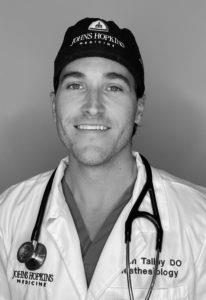CBD and The Entourage Effect
CBD & The Entourage Effect – The Ultimate Guide
Dr. Jordan Talley, Spero
What is the entourage effect?
The entourage effect is a theory that could completely change how you decide to consume CBD going forward. The theory proposes the idea that CBD is more effective when it is ingested with other cannabinoids at the same time. When you purchase standard CBD oil, you are buying the compound in an isolated form with no other cannabinoids attached. Using the whole hemp plant, full spectrum CBD contains all of the naturally occurring cannabinoids in the cannabis plant, along with trace amounts of THC.
How does the entourage effect work?
There is much more to cannabis than just CBD and THC. The plant contains dozens of different cannabinoids that each have their own unique properties. CBD may be the most beneficial from a wellness standpoint, but the support of other cannabinoids can actually boost the performance of the compound and its ability to positively impact the ECS. This is why many people have been turning to full spectrum CBD as part of their daily wellness routine.
The diverse cannabinoid content in full spectrum CBD can help to maximize the possibilities of the cannabis plant as it enters your body. If you are an experienced user of CBD isolate and want to start exploring more cannabinoids in the cannabis plant, you could give full spectrum CBD oil a try to see whether the entourage effect manifests itself.
What does the entourage effect feel like?
While CBD interacts with CB1 and CB2 receptors, it does not bind to them. This is rather unusual among cannabinoids. By using full spectrum or broad spectrum CBD oil, you will be consuming a range of cannabinoids that bind to receptors located in both the central nervous system and the peripheral nervous system. You can think of the entourage effect as the enhancement of your endocannabinoid system through the use of multiple cannabinoids.
Is full spectrum CBD better?
It all depends on what you’re looking for! Some people prefer CBD isolate over full spectrum CBD because of the entourage effect. For more advanced users of CBD, consuming this cannabinoid in an isolated form is going to offer limited therapeutic effects. Whereas full spectrum CBD is going to drastically enhance those effects and unlock the keys to a whole world of new exogenous cannabinoids that have never entered your system before.
If you’re a CBD beginner, trying full spectrum CBD has the potential to overwhelm you. CBD in an isolated form can serve as the perfect introduction to the chemical compound with subtle effects that you will be able to easily monitor. When you’ve never had a CBD product before, buying full spectrum CBD is like jumping into the deep end.
Does broad-spectrum CBD get you high?
Neither broad-spectrum CBD or full spectrum CBD can result in a “high” sensation. It can be very easy to confuse the different CBD products on the marketplace. CBD isolate only contains CBD. Full spectrum CBD contains all of the naturally occurring cannabinoids found in the cannabis plant, along with trace amounts of CBD. Broad-spectrum CBD contains all of the compounds found in the cannabis plant, including terpenes, cannabinoids, and essential oils, with the exception of THC.
Final Thoughts
We hope that this article has proven to be a useful educational resource as you endeavour to learn more about the incredible world of CBD. Understanding the content of the entourage effect is vital to be able to distinguish between different forms of CBD. If you know exactly what you’re buying, you will inevitably make stronger buying decisions that are going to provide you with greater levels of benefit.

Dr. Jordan Talley
Dr. Talley is a Physician Anesthesiologist who completed his medical residency at Johns Hopkins University School of Medicine. Prior to medical school, he obtained a Master’s Degree in Physiology & Biophysics from Georgetown University. He completed his medical school at Lake Erie College of Osteopathic Medicine (LECOM - Bradenton Campus). During his Anesthesiology training at Johns Hopkins he completed rotations in Chronic Pain Management and continues to manage acute and peri-operative pain for his patient as a private practice anesthesiologist in Virginia.